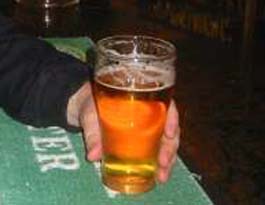|
|
|
|
Peterellis.org.nz
Home / Moral Panics / Drug
Rape urban myth Discussion
Papers about Drug Rape Scares |
|
|
ABC Central Victoria
While warnings about drug-spiked
drinks are commonplace, how common are the incidents which give rise to them? Over the years, much has been made
of the practice of spiking drinks - whether with extra, unsuspected alcohol,
or with drugs, including 'date rape' drug, Rohypnol. With several awareness campaigns
being run over the years, and another about to start, Robert Hanson - a
chemist and toxicologist with the Forensic Science Laboratory at the
Chemistry Centre in Perth - says the idea of drug-spiked drinks is more urban
myth than reality. Mr Hanson explains that the
Chemistry Centre is a government agency which has, at the request of the
Western Australian police, been conducting a long-term study into
drink-spiking. "We've been doing it now for
about 18 months and, of all the samples [where] the victims have requested
police involvement, we have yet to find any drug - or sedating drug - which
would be indicative of the drink-spiking type crime." He says the majority of samples
taken were within 24 hours of the claimed offence, but that, for technical
purposes, they'd like to see people report sooner, within 12 hours. The
sooner a crime is reported, the better the chance of tests revealing the
presence of any illicit drugs used. "Drugs like Ketamine are very
detectable; benzodiazepans are detectable. However GHB, which is known as
'Fantasy', has a very short half-life and the detection limit of that would
be dependent upon early reporting and sampling." The most infamous of the 'date
rape drugs', Rohypnol, didn't come up in the survey at all, despite being
targeted. "Rohypnol's been off the market since about 1997," Mr
Hanson says. If spiking is going on, it seems
to be with alcohol - people thinking they're consuming single nips, when
they're actually drinking a double, or stronger, mix. "We've correlated the alcohol
levels found in the victims, and we've compared that to the alleged amount of
alcohol consumed," he says. "And by far and away, the alcohol level
found in the blood samples was far in excess of that which would be
calculated based on consumption." Perhaps that result is not
surprising. Alcohol is legal, readily available and relatively cheap. Add to
that, it can be difficult to effectively spike a drink with a powdered drug
made from commercially available tablets, since those tablets are made up
largely of inert, insoluble material that leaves a visible residue. "We've basically declared it
[drug spiking] an urban myth," Mr Hanson says. "We believe it's
just an excuse to hide abhorrent behaviour or inexperienced drinking, as a
way of explaining, or trying to explain away, what young people were doing
when they shouldn't be." Mr Hanson says the research will
continue for another year or 18 months. |


